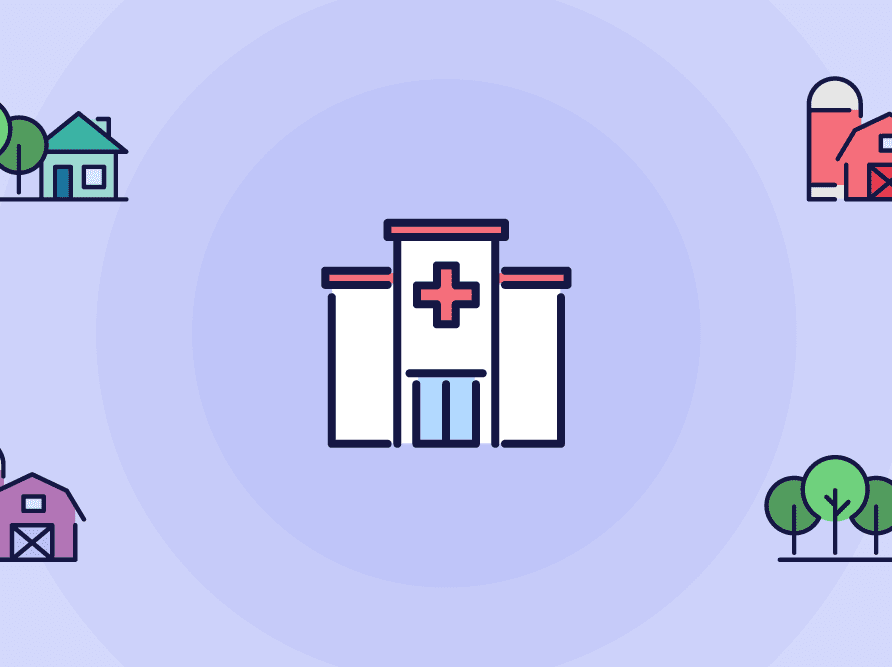Article
Six mental health tips for healthcare professionals during the COVID-19 pandemic
* This content was originally published prior to N. Harris Computer Corporation’s 2022 acquisition of the Allscripts Hospital and Large Physician Practice business segment. Our business is now known as Altera Digital Health.
The COVID-19 pandemic has taken a toll on all of us, and healthcare professionals (HCPs) in particular are carrying the weight of the ongoing crisis. Sixty-two percent of these frontline workers report that worry or stress related to COVID-19 has had a negative impact on their mental health. Given the many challenges that lie ahead, I’d like to share a few ways HCPs can care for themselves as they continue caring for others.
1. Establishing a routine
While many healthcare settings naturally come with some level of unpredictability, the pandemic has compounded it to new levels. To mitigate this, the Centers for Disease Control & Prevention (CDC) recommends providers keep a consistent daily routine. Carving out time for an adequate night’s sleep, establishing regular mealtimes and connecting with family and friends frequently can reinstate some degree of control.
2. Exercising regularly
Exercise is another key component to add to daily routines as the psychological benefits of moderately intense physical activity are well documented. Healthcare organizations looking for new ways to engage staff can organize yoga sessions, running clubs or other group exercise activities to support their staff’s well-being and foster a sense of community.
3. Knowing how to protect loved ones
A primary concern among clinicians is the potential to transmit the novel coronavirus to members of their household when they come home from their hospital or practice. This possibility may be particularly worrisome to those with family members who have comorbidities or parents of children who are not old enough to receive the vaccine. To help address these fears, HCPs can take several measures to avoid spreading COVID-19 to loved ones, including:
- Disinfecting cellphones often
- Changing scrubs and shoes before returning home
- Leaving high-touch objects on the unit if they are not essential to the home, such as personal stethoscopes, clipboards and pens
- Handwashing frequently
4. Limiting social media and news consumption
It is virtually impossible to avoid posts and segments on daily case numbers, misinformation, and devastating personal stories on our social media feeds and the news. Dedicating time away from devices can help HCPs unplug from the pandemic, even if for a short time, for a well-deserved mental reprieve from the daily realities and responsibilities they are confronted with at work.
5. Recognizing signs of duress
Different people respond differently to stress. It can present through emotional signs, like work-related dread and compassion fatigue, as well as physical signs, such as changes in appetite and headaches. Understanding the many ways stress can manifest is crucial for HCPs so they can recognize when it has become a chronic issue affecting their well-being.
6. Knowing options for help
Healthcare organizations can support staff members by pointing them to tools that are helpful in times of crisis. Nationally available resources include the Disaster Distress Helpline (1-800-985-5990) and National Suicide Prevention Lifeline (1-800-273-8255). Additional options for substance use disorder treatment, behavioral health treatment and other needs can be found through the Substance Abuse and Mental Health Services Administration’s (SAMHSA) Find Treatment site.
Some healthcare organizations also offer internal resources, as well. For example, in 2013, Allscripts client Northwell Health established Team Lavender, a program which gives its staff 24/7 access to emotional, spiritual and physical assistance.
The recent FDA approval of the Pfizer vaccine offers new hope, but the pandemic is not over. Consider sharing these tips with frontline healthcare workers at your organization and in your lives. At Allscripts, we remain committed to supporting our clients with our package of COVID-19 solutions and services for hospitals so they can keep their patients—and staff members—safe and well during the pandemic.













